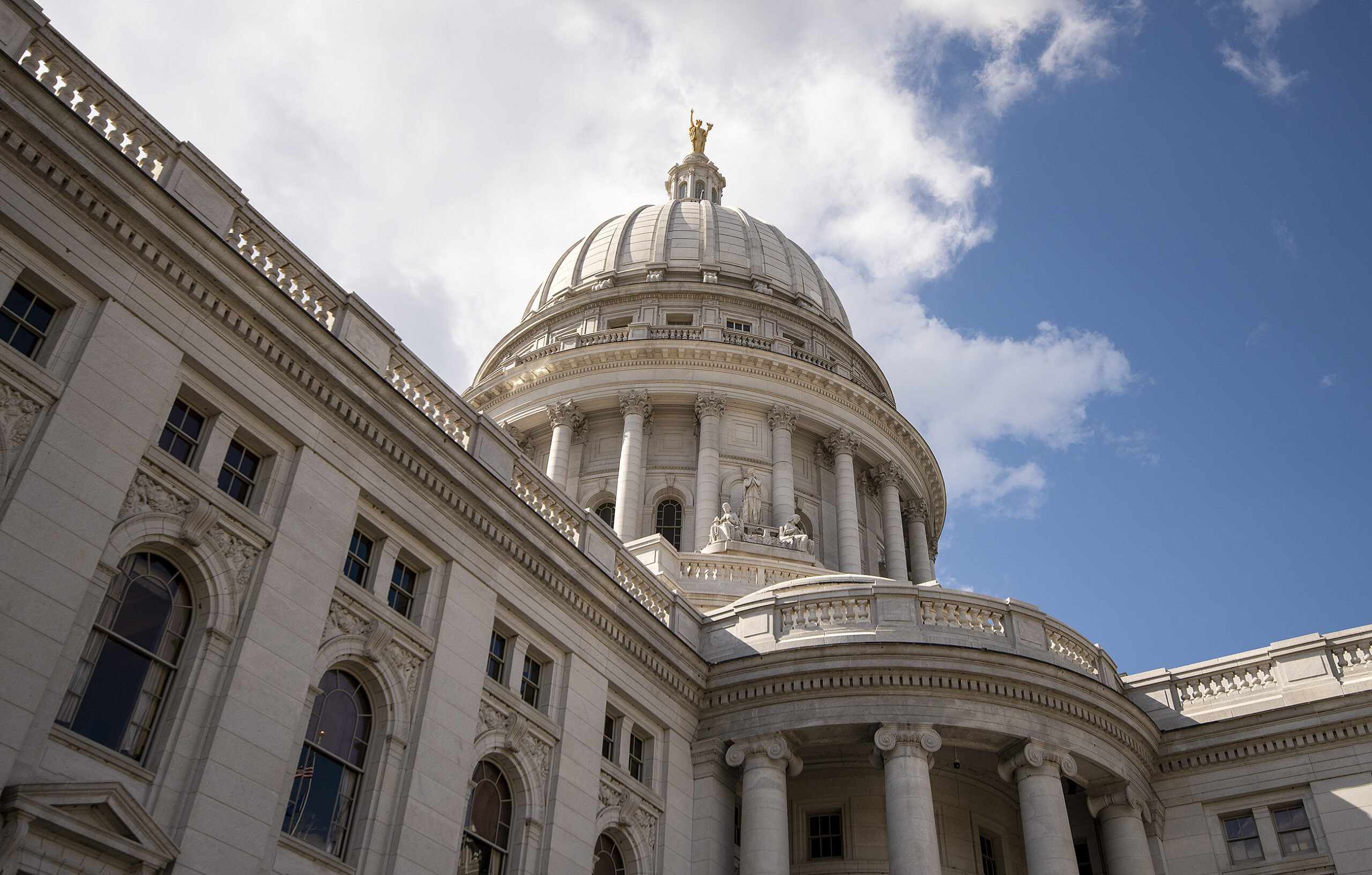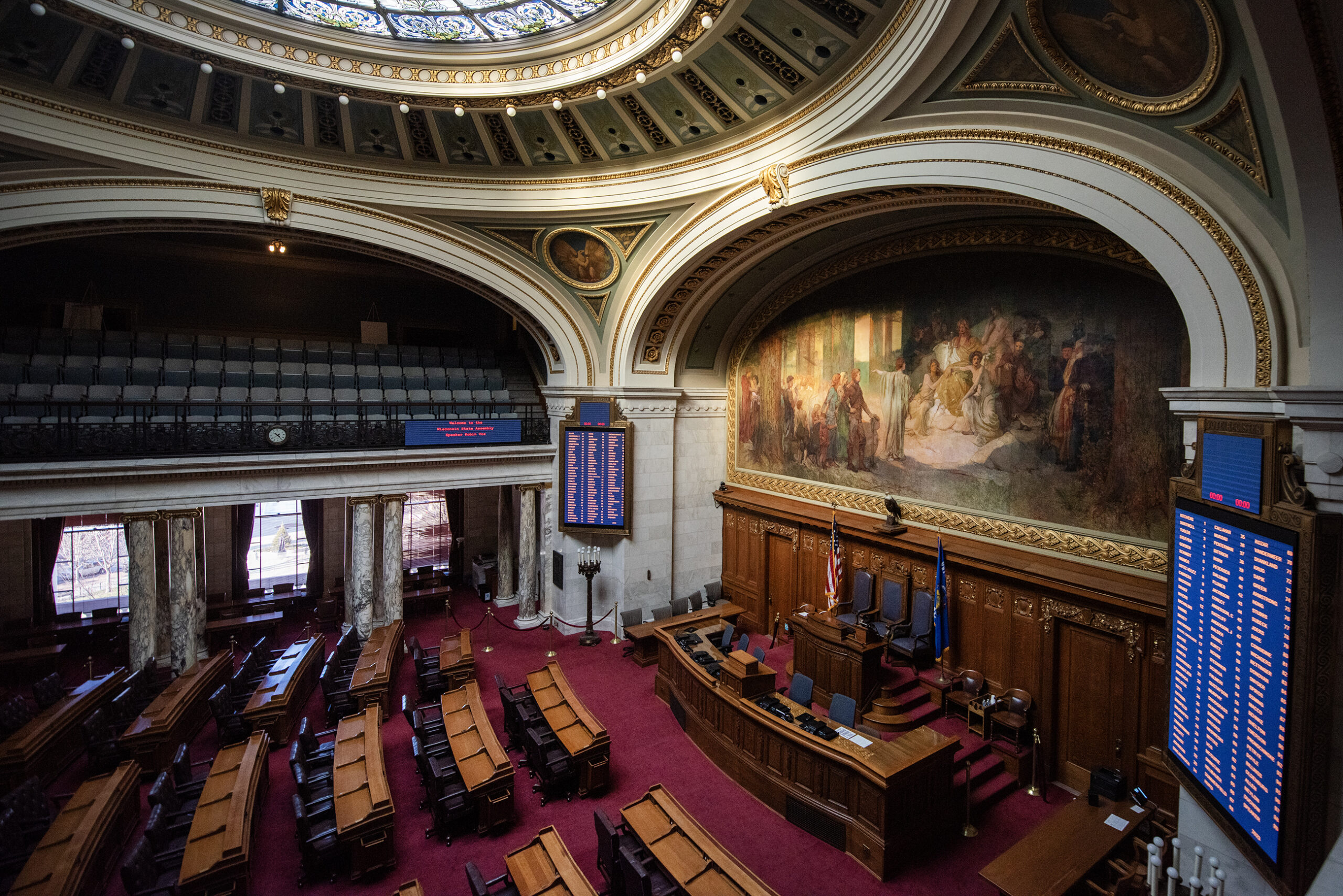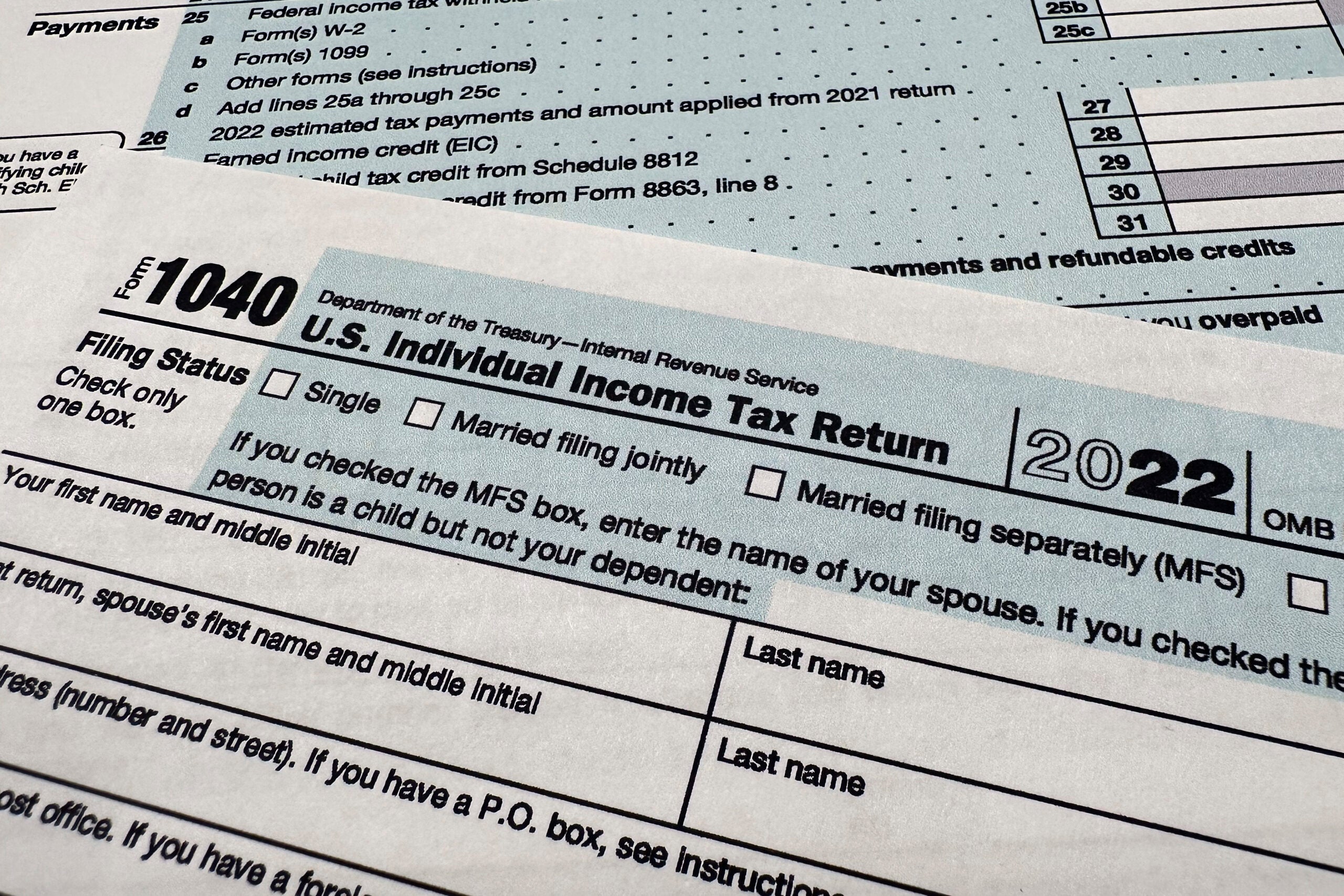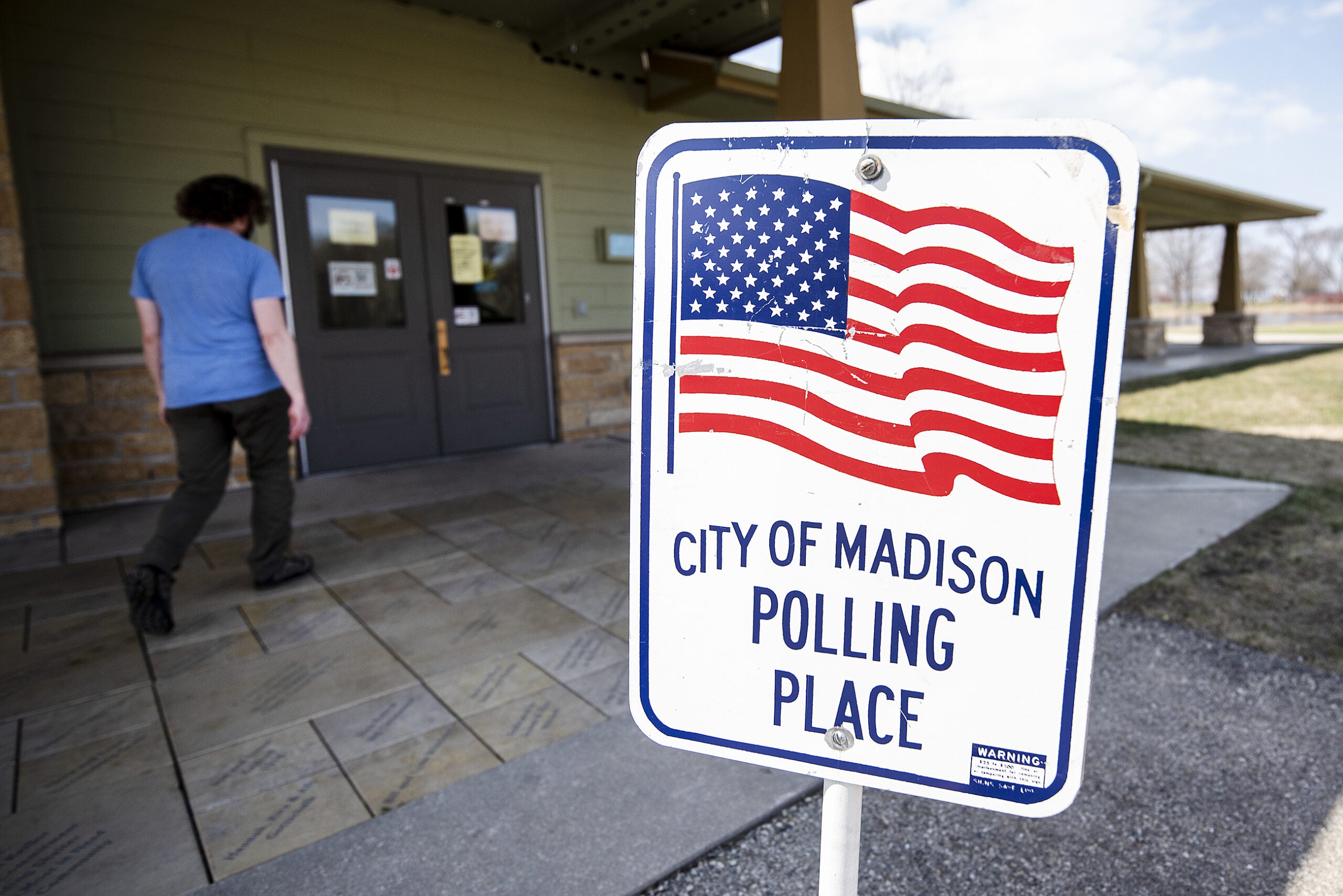For most of this year, Democratic Gov. Tony Evers and Republicans who run the Legislature have seemed on the cusp of a deal that would overhaul how the state funds local government expenses like police, emergency medical services and roads.
They can still get there, and maybe soon. But they’ve hit obstacles recently that could endanger the agreement.
Earlier this month, Evers threatened to veto the first version of the plan proposed by Assembly Republicans because he said it included too many strings, and not enough funding.
Stay informed on the latest news
Sign up for WPR’s email newsletter.
Then last week, GOP Senate Majority Leader Devin LeMahieu, R-Oostburg, said Republicans in his chamber would likely remove a requirement that Milwaukee voters pass a referendum to raise local sales taxes. Republican Assembly Speaker Robin Vos, R-Rochester, responded by warning that LeMahieu’s suggestion could kill the bill.
The dispute threatens an otherwise broad agreement that the state needs to help local governments — from Milwaukee to Wisconsin’s small towns — who’ve reached a tipping point when it comes to paying for basic services constituents expect.
Here’s where things stand with the bill.
Why are lawmakers and the governor talking about increasing local funding now?
State funding for counties and municipalities, often referred to as shared revenue, has been cut three times in the past 20 years, meaning local governments receive less shared revenue now than they did in the 1990s.
Local government leaders have sounded the alarm about the consequences of these cuts for years, but until recently, those leaders were largely ignored.
The side effects of stagnant state funding have been showing for some time. At least six years ago, some small Wisconsin towns began replacing paved roads with gravel because they simply ran out of money.
Gov. Tony Evers called for modest increases to county and municipal funding in his 2019 and 2021 budgets. Both times, Republican lawmakers rejected them.
But for a variety of reasons, this latest effort appears to be different.
During his 2022 campaign for governor, Evers called increasing shared revenue his “top priority.” Shortly after the election, Vos said the state had to do “something different” when it comes to paying local government employees like police.
Their comments came as more than 20 Wisconsin communities asked voters to raise local taxes to pay for public safety, and at a time when inflation was making paying for everything, including government salaries, more challenging.
Another factor also proved key. Many small Wisconsin towns, which had for years relied on volunteers to staff ambulance services, have been finding themselves short on staff and suddenly unable to respond to emergency calls.
Jerry Derr, the president of the Wisconsin Towns Association and the town chair of Bristol in Dane County, said at an April press conference that his town has now spent more on emergency services than it has on fixing its roads.
“If you drive through a few potholes, that’s one thing,” Derr said. “But if you can’t respond with ambulance and fire service, that’s a whole different ballgame.”
The increased strains on Wisconsin’s small towns, many of which are represented by Republicans, come as Milwaukee, a Democratic stronghold, faces harrowing financial challenges of its own.
Due in large part to escalating pension costs, Milwaukee leaders have warned the city stands on the precipice of a “fiscal cliff.” Without drastic action soon, Mayor Cavalier Johnson has warned hundreds of police and firefighters would be laid off and several libraries and fire stations would need to be closed just to balance the city’s books.
Where do lawmakers and the governor agree when it comes to funding local governments?
While their disagreements have received more attention lately, GOP leaders and the governor seem to be on the same page when it comes to a new source of funding for local governments.
Both support using 20 percent of Wisconsin’s sales tax revenue to fund cities, villages, towns and counties. The benefit to mayors, town presidents and other officials is that dedicating a percentage of the sales tax to local governments means their funding will increase as the economy grows over time.
That stands in stark contrast to the state’s current local government funding formula, which hasn’t come close to keeping pace with rising expenses. According to the Wisconsin Policy Forum, if shared revenue payments made in 1990 had grown at the rate of the Consumer Price Index, they would have more than doubled by now. Instead — even without accounting for inflation — those payments have been cut.
How would the new local money be divvied up?
Who gets what when it comes to the local government funding bill may still be a work in progress, but Assembly Republicans laid down one marker with the bill they passed this month.
Under that formula, which the nonpartisan Legislative Fiscal Bureau said was created by the Wisconsin Counties Association, towns would see a 157 percent increase in funding, by far the largest among all local government types in Wisconsin. Cities would still receive the most overall funding from the state, but their increase would have been much smaller, at just 15 percent.
Despite the varying levels of funding, Wisconsin’s local government groups that represent towns, cities and counties all support the plan.
The GOP bill would also call for creation of a $300 million “innovation fund” to be paid for with one-time money, to help local governments pay for cost-cutting partnerships. Additionally, the bill would repeal Wisconsin’s personal property tax.
After Evers complained “the state must step up more than what (he’d) seen” in the GOP bill, Republicans released an amended version that would boost aid to all municipalities by $16 million and to all counties by another $18 million.
That amended plan — which passed the Assembly last week with only Republican votes — would also make sure almost every community receives at least a 15 percent increase in state aid. The notable exception would be Milwaukee, which would receive a 10 percent increase.
Republicans say the lower share of state funding for Milwaukee would be more than offset by another provision that could let the city increase its own revenue at the local level.
What’s happening with Milwaukee’s funding?
Under the bill that passed the Assembly, the city of Milwaukee would be allowed to levy a local sales tax of 2 percent if voters approve it first in a referendum. Milwaukee County would be allowed to increase its local sales tax by 0.375 percent if approved by a separate referendum.
According to estimates by the state Department of Revenue, the city sales tax would increase local revenues by nearly $194 million per year while the county sales tax would generate nearly $73 million annually. The revenue would be used to pay down pension debt and prevent cuts to police and firefighter staffing.
If both the city and county referendums passed, the sales tax in the city of Milwaukee would be 7.875 percent when adding in the existing state and county sales taxes.
What’s happening with the Milwaukee referendum requirement?
To hear GOP leaders describe it, the fate of the entire bill could hinge on the referendum requirement for Milwaukee.
Vos has consistently described the referendum requirement as a must-have for the Assembly GOP caucus, and it was part of the bill that passed the Assembly.
LeMahieu said last week that Senate Republicans would likely remove the referendum requirement, which prompted a quick rebuke from Vos.
“That could unfortunately kill the bill and all of our good work,” Vos said.
Mayor Johnson has worked closely with Vos on the overall plan, but he made it clear at a public hearing that if he had his way, the referendum requirement for Milwaukee would come out of the bill. The fear among Johnson and other Milwaukee leaders is that if the referendum fails, there’s no backup plan, only mass layoffs of city workers, including police and firefighters.
“I don’t want Milwaukee to be in a position where we leave all this up to chance, and it all unravels or falls apart,” Johnson told lawmakers earlier this month.
Evers’ original shared revenue plan would have required a referendum, but his spokesperson said last week the governor supports LeMahieu’s efforts to remove it from the bill.
What are Evers’ concerns with the bill?
When Evers threatened to veto the first draft of the Republican local government funding bill, he cited all the new restrictions local governments would have to follow in exchange for the new money.
Assembly Republicans loosened some of those restrictions, but numerous others remain.
- The new funding in the bill would have to be spent on law enforcement, fire protection, emergency medical services, emergency response communications, public works, transportation or court costs.
- Local governments could be penalized if they cut police or firefighter positions.
- Communities north of U.S. Highway 8 would gain the power to block land purchases funded by the Warren Knowles-Gaylord Nelson Stewardship program.
- Communities would be limited when it comes to regulating quarries. For example, they could not ban blasting at a quarry, and in many cases, they could not limit the times of day they’re allowed to operate.
- Advisory referendums, like those asking voters what they think on issues like marijuana legalization or abortion restrictions, would be banned, though they’d still be allowed for questions about capital projects.
- Local governments would be banned from making hiring decisions based on race, color, ancestry, national origin or sexual orientation.
- All schools would be required to collect statistics on crimes alleged to have occurred on school grounds.
The bill also includes several new strings that are specific to Milwaukee.
- Milwaukee’s police commission would have to include at least one member of the local police union and its fire commission would have to include at least one member of the firefighter union.
- Armed police would return to the city’s schools, reversing a decision made by the local school board in 2020 after the police murder of George Floyd.
- The city would be banned from using new sales tax revenue to employ people who are tasked with promoting people or groups based on their race or sexual orientation.
- Milwaukee wouldn’t be allowed to use its new revenue for “developing, operating, or maintaining” Milwaukee’s streetcar, The Hop.
Can Evers use his veto pen to change it?
Had the local government funding bill been included in the state budget, as the governor wanted, Evers could use his powerful partial veto pen to remove the stuff he doesn’t like and keep the stuff he wants.
But the way Republicans wrote the bill — which was no accident — Evers would either have to sign or veto the whole thing.
While the plan lays out a blueprint for spending hundreds of millions of dollars, Republicans have been careful to make sure that it doesn’t actually appropriate any money. That means Evers has to take it or leave it, which gives Republicans more leverage.
What happens if lawmakers in the Senate and Assembly pass different bills?
Put simply, nothing happens.
The Assembly and Senate must pass the identical bill in order to send it to Gov. Evers’ desk. If the Senate makes one small change, the Assembly has to vote again on whether to “concur,” or agree with that amendment. In the case of removing the referendum requirement, Vos said that won’t happen.
The Senate could back down, or the two sides could send the bill to a conference committee to negotiate a compromise. Or they could end up not agreeing on one of the biggest issues facing state government this year, one that everyone at the Capitol seems to be talking about.
Wisconsin Public Radio, © Copyright 2025, Board of Regents of the University of Wisconsin System and Wisconsin Educational Communications Board.






